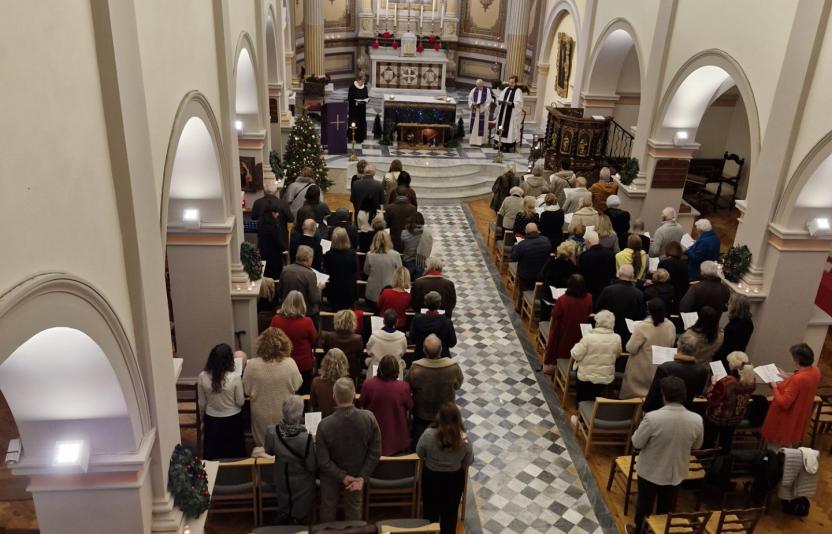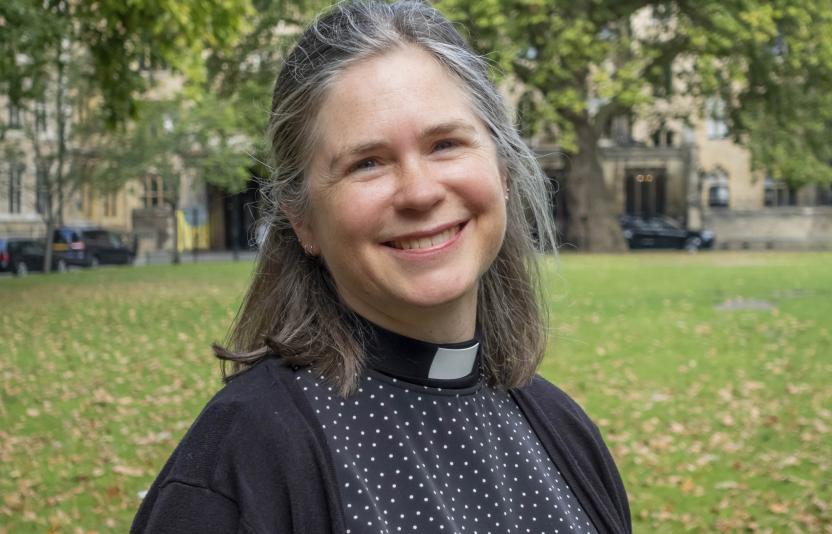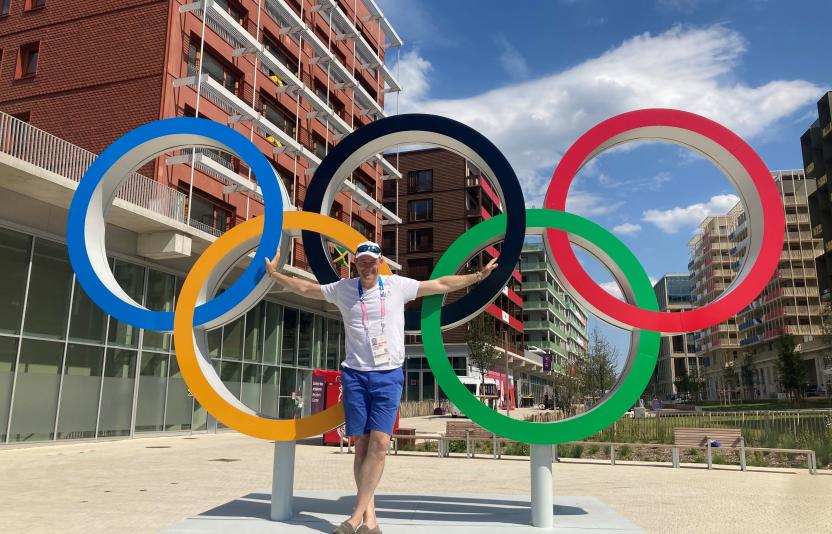‘Pearls’ of growth in Marseille

Continuing our theme of Mission and Growth in the Spring edition of European Anglican magazine, we feature here the flourishing chaplaincy in Marseille.
A chaplaincy in the south of France that began in an upper room catering for the needs of seafarers has now grown from 2 churches to 4 in the past few years as well as seeing their numbers increasing, despite the pandemic.
Chaplain at All Saints’ Marseille, the Revd Jamie Johnston, was building on a long history of the English-speaking Anglican church in the city when he took up his post as chaplain in 2019.
He explained, “There has been an Anglican presence in Marseille since 1849, when an ‘English Church’ was established in a rented upper room. The present church of All Saints was built in 1902, mainly to cater for the English-speaking seafaring community at a time when Marseille was a principal port for maritime traffic linking the British Isles, the Mediterranean, Africa and the East.”
Over the years, as Marseille lost its former importance as a passenger port through the rise of air travel, the congregation of All Saints became more international, although it continues to reach out to those passing through the port.
Jamie said there was a thriving church community in Marseille and Aix-en-Provence when he arrived. “We have seen quite a lot of change, partly driven by circumstances, and partly through our own initiative,” he said. The chaplaincy’s ministry team currently includes a Curate, the Revd Roxana Tenea Teleman, Readers Jane Quarmby and Christine Portman, and retired priests Canon David Pickering and the Revd Patrick Cassidy.
All Saints’ Marseille, with its historic church, was joined in the 1950s by a daughter church meeting in the nearby university town of Aix-en-Provence. Then a couple of years before Jamie arrived, a group of English speakers living in the Luberon valley, where author Peter Mayle’s book, A Year in Provence, was set, asked to form their own Anglican congregation linked to All Saints.
Jamie explained that this group meets once a month in a local church. Services online during the pandemic helped to sustain the congregation, and since the pandemic it has been growing significantly.
The chaplaincy’s fourth congregation began in 2022 in Manosque, a town in the Alpes-de-Haute-Provence with some large local employers that have an international workforce. This congregation meets each month on a Sunday afternoon. All the different congregations are able to connect in with the weekly Sunday morning services at All Saints, either in person or online in what they describe as hybrid services.
Jamie said that the surprising growth in the chaplaincy’s churches had come about in part because of changes in patterns of worship due to the COVID pandemic.
“Because of the pandemic and the disruption it caused, we were able to review quite a lot of things and the result of that has been both a broadening of our membership, geographically and locally, and also a connecting through technology that has been helpful – sharing services live on Zoom,” he said.
“So, it has been the grit in the oyster that creates the pearl, in the sense that the disruption caused by the pandemic time made us re-think a lot and expand our reach. But also, when the pandemic finished, the energy that has come from physically being back in church and being part of our communities, both in ecumenical partnership and community engagement, has all helped us grow.”
In addition to the two new churches, All Saints has a number of people who continue to worship with them online from much further afield, but who wanted to continue to be part of the church after the pandemic restrictions ended. Jamie estimates the total membership at around 110 people, not all of whom log in or attend every week.
Jamie said: “Our services are in the central tradition and mostly eucharistic, our theology is open, it’s questioning, it’s broad, it invites discussion and we run courses regularly for the congregation. We encourage people to wrestle with their faith.”
Curate at All Saints, the Revd Roxana Tenea Teleman, said, “There is no uniformity in the theology of our congregations, some of whom come from Roman Catholic, Orthodox or Reformed traditions. But we’ve created a place where people feel confident to express their views and to listen to each other and I think that’s very important. It’s a generous space where all are welcome.”
Community involvement is very important at All Saints, which has been an established part of the local community for many years. Through strong ecumenical relations in the city (where Jamie is the regional Anglican ecumenical representative), there are plans to work in partnership with other churches to reach out to the city’s many migrants and refugees. The members of the Marseille congregation are as diverse, multicultural and multi-lingual as the city itself.
Jamie said that during the pandemic the Basilica of Notre-Dame de la Garde in Marseille broadcast a service in English on YouTube for all the crews stuck on cruise and cargo ships in the port;
“We took part in that because it was in English and because part of our ministry involves working with the seafarers club, the Association Marseillaise d’Accueil des Marins, which is the successor to the club originally set up by the Anglican church 150 years ago,” he said.
All Saints’ members provide a high proportion of the volunteers who staff the club offering refreshments, a friendly face and internet access for crews from the ships who find themselves a long way from family and friends.
Jamie also takes services on board ship when requested, as the common language is English. One Communion service which he led during the pandemic, in memory of a crew member who had tragically taken his own life on New Year’s Eve, drew in 120 members of the crew made up of different Christian denominations; “The community was in shock. I had no idea how many would come, so I took all the communion wafers we had in the church. At the end of the service, there were just two left.”
With all the varied and bubbling congregations, what is the winning formula drawing people in?
“I would say it is the warmth of the welcome and the loving community we try to model where people can find companionship, support, enjoyment and people who are there for them in a crisis,” Jamie said.
Roxana said, “I think people are drawn in because of the way the church is open to the outside world, and always welcoming people. It is this spirit of welcome among people who themselves have been welcomed and included, they want to give something in return.”
“It’s significant that we are an inclusive church, where all are welcome,” Jamie said. “We turn no one away.”
Looking ahead, both Jamie and Roxana (who is shortly due to be licensed as Assistant Chaplain) hope to see further growth, and there are plans to develop an ecumenical ‘messy church’ in Marseille, which in French will be known as église pêle-mêle’! Their hope is that this will draw in more young families and children to the church.
European Anglican magazine
If you would like to enjoy more stories and articles from across our diocese, receive a copy of the magazine via email each quarter.



